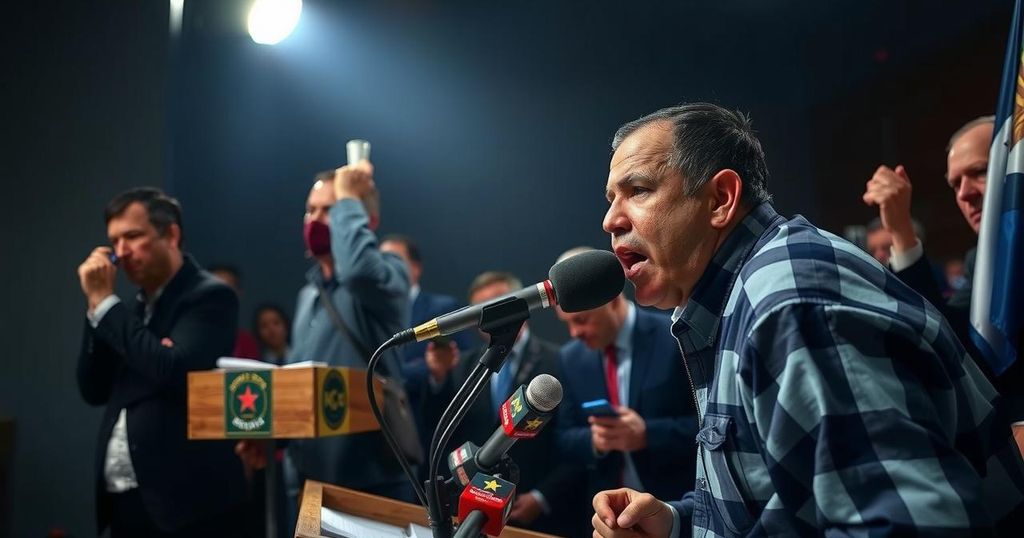Uruguay’s presidential runoff election features a tight race between Álvaro Delgado of the National Party and Yamandú Orsi of the Broad Front, following a first round where Orsi led with 44% of the votes. Concerns over rising crime and economic policies dominate the campaign discourse, as nearly 10% of voters remain undecided. The outcome of this election may significantly impact Uruguay’s future trajectory and governmental policies.
Uruguay is preparing for a crucial presidential runoff election, featuring a tight competition between the candidates of the National Party and the Broad Front coalition. The recent political landscape shifted dramatically following the first round of voting on October 27, during which the left-leaning candidate Yamandú Orsi secured 44% of the votes, while his rival Álvaro Delgado, representing the ruling National Party, garnered 27%. With additional support from other conservative parties such as the Colorado Party, Delgado now has a competitive advantage as the two candidates campaign vigorously for undecided voters in a race characterized by generalized voter discontent and low enthusiasm.
The upcoming election underscores fundamental issues in the electorate, notably increasing concerns surrounding public safety due to a rise in violent crime amidst the backdrop of consistent economic growth, projected at 3.2% for the year. Both candidates have focused on presenting their plans to address voter anxiety, with Delgado promising continuity in government policies favoring free-market approaches and intending to uphold the legacy of current President Luis Lacalle Pou. In contrast, Orsi aims to foster a new left that advocates for economic reforms and social justice while linking himself to the former popular administration of José “Pepe” Mujica, whose policies significantly shaped Uruguay’s social landscape.
As the election approaches, political analysts observe a near-50% voter indecision rate, highlighting the unique nature of this electoral contest. Compared to previous political climates in different regions, the stakes of this election appear to center around traditional economic and social issues rather than polarizing anti-establishment rhetoric prevalent in other countries. Thus, Uruguay’s political sector showcases a dynamic and democratic process amid a period viewed as vital for the nation’s future.
The political climate in Uruguay shifted after the victory of center-right President Luis Lacalle Pou in 2019, which ended a 15-year tenure by the left-leaning Broad Front coalition. This election marks a critical juncture for the country as it grapples with rising public safety concerns, economic challenges, and the legacy of past administrations. The elections are shaped by debates centered on taxes, public safety, and social policies, amidst an electorate that is notably undecided and wary of overly ambitious proposals. Overall, the election characterizes Uruguay’s strength in maintaining a democratic process, allowing for meaningful contention among candidates with differing visions for the country’s future.
In conclusion, the upcoming presidential runoff in Uruguay is characterized by a close race between Álvaro Delgado and Yamandú Orsi, reflecting a significant shift from previous political dynamics. With both candidates vying for the support of undecided voters amidst rising crime concerns and an economy in growth, the election will likely have profound implications for Uruguay’s political landscape. Ultimately, the low levels of voter enthusiasm and indecision may indicate a broader trend of voter fatigue in the face of the critical choices ahead.
Original Source: apnews.com






